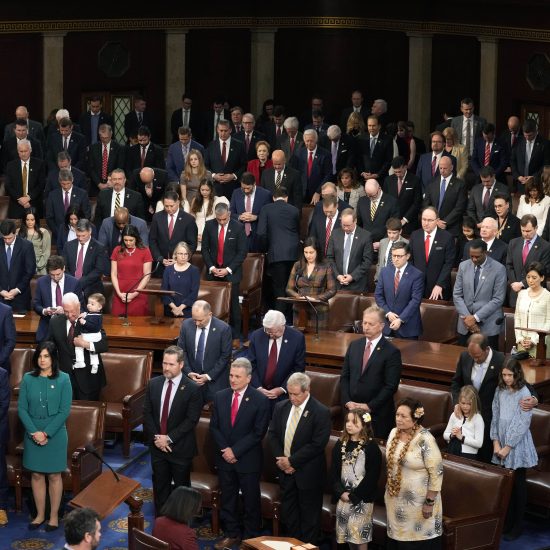NASHVILLE, Tenn. — Nearly equal numbers of pastors in the Southern Baptist Convention consider their churches as Calvinist/Reformed as do Arminian/Wesleyan, although more than 60 percent are concerned about the affect of Calvinism on the denomination, according to a new survey from LifeWay Research.
LifeWay Research presented a slate of statements about Calvinism to a randomly selected sample of senior pastors in the SBC to gauge their theological inclination and whether they are concerned about the impact of Calvinism in the convention.
Sixty-six percent of pastors do not consider their church a Reformed theology congregation, while 30 percent agree (somewhat or strongly) with the statement “My church is theologically Reformed or Calvinist.” Four percent did not know. This compares to 29 percent who agreed to this statement in an earlier survey of 1,000 Protestant pastors in 2011.
By the same token, 64 percent of SBC pastors also disagree (15 percent somewhat; 49 percent strongly) that “My church is theologically Arminian or Wesleyan.” Thirty percent of respondents classify their church as Arminian or Wesleyan, with 6 percent selecting “Don’t know.” This compares to 37 percent of Protestant pastors who agreed on the 2011 survey.
“It is fascinating how much debate is occurring right now on this topic when most pastors indicate that neither end of the spectrum correctly identifies their church,” said Ed Stetzer, president of LifeWay Research.
“However, historically, many Baptists have considered themselves neither Calvinist nor Arminian, but holding a unique theological approach not framed well by either category.”
Stetzer also explained, “We used the terms ‘Reformed or Calvinist,’ as that is generally self-explanatory. However, the terms ‘Arminian or Wesleyan’ are less common as Wesleyans are often seen as another denomination, and many are uncomfortable with the term ‘Arminian.’
“However, to compare it to Protestant pastors, we wanted to use consistent terms—and, I imagine, many will be surprised that language did not keep respondents away—with an equal number claiming Reformed or Calvinist as claimed Arminian or Wesleyan.”
The survey revealed more than 60 percent of SBC pastors agree (35 percent strongly; 26 percent somewhat) they are “concerned about the impact of Calvinism in our convention.” Thirty percent disagree (16 percent strongly, 14 percent somewhat) with the statement. Nine percent chose “Don’t know.”
The survey showed pastors of Midwestern churches are more likely than pastors in the South (20 percent vs. 13 percent) to somewhat disagree and less likely to strongly agree (27 percent vs. 37 percent) they are concerned about the impact of Calvinism in the SBC.
Pastors age 18-44 are most likely to strongly disagree (26 percent) that they are concerned (4 percent selected “Don’t know”) and are more likely (20 percent) to somewhat disagree than pastors age 55-64 (10 percent) and 65 and older (9 percent).
Seventy-eight percent of pastors responded they personally are not five-point Calvinists, while 16 percent agreed (8 percent somewhat and 8 percent strongly) with the statement, “I am a five-point Calvinist.” This compares to 32 percent of pastors who agreed with the statement in last year’s survey of Protestant pastors.
The majority is reflected in every age bracket, although SBC pastors age 55-64 (77 percent) and 65 and older (77 percent) are more likely to “strongly disagree” with the statement than pastors age 18-44 (60 percent) and 45-54 (66 percent). Pastors age 18-44 (18 percent) and 45-54 (10 percent) are more likely to strongly agree with the statement than pastors age 55-64 (3 percent) and 65 and over (1 percent).
The survey also showed SBC pastors of churches with less than 50 in attendance are most likely to select “Don’t know” (14 percent) and the least likely to strongly disagree (62 percent) with the statement, “I am a five-point Calvinist.”
LifeWay Research asked a similar question in a 2006 SBC survey, which revealed 85 percent did not consider themselves five-point Calvinists and 10 percent affirmed that they were five-point Calvinists.
“Rather than ask a single question of yes or no, the new survey was intended to capture some of the complexity of the debate by covering several specific theological points and bringing clarity to how strongly pastors hold each position,” Stetzer explained.
Ten percent of respondents strongly agree with the statement, “Christ died only for the elect, not for everyone in the world,” and another 6 percent somewhat agree. More than 80 percent somewhat disagree (6 percent) and strongly disagree (77 percent) with the statement. This compares to 91 percent of Protestant pastors who disagreed in the earlier survey.
Half of SBC pastors agree with a statement related to irresistible grace—31 percent strongly agree and 19 percent somewhat agree with the statement “God is the true evangelist, and when he calls someone to himself, his grace is irresistible.” Forty-eight percent (29 percent strongly, 19 percent somewhat) disagree with the statement. This matches the agreement Protestant pastors showed (50 percent) in the 2011 survey.
Two-thirds of SBC pastors strongly disagree with a statement on double predestination: “Before the foundation of the world, God predestined some people to salvation and some to damnation.” Eleven percent strongly agree with the statement, while 10 percent somewhat agree and 9 percent somewhat disagree. A similar question was asked of Protestant pastors and 13 percent agreed.
More than 90 percent strongly disagree that “it diminishes God’s sovereignty to invite all persons to repent and believe.” An additional 5 percent somewhat disagree, leaving 4 percent who strongly or somewhat agree. This compares to 87 percent of Protestant pastors who disagreed.
Ninety-four percent of respondents believe in the security of the believer, that “a person can, after becoming a Christian, reject Christ and lose their salvation.” Five percent agree a person can lose their salvation.
“There appears to be a lot of concern among Southern Baptist pastors on the impact of Calvinism, but the beliefs in these doctrines, at least measured by these questions, show quite a mix of beliefs,” Stetzer said.
Stetzer summarized: “Most Baptists are not Calvinists, though many are, and most Baptists are not Arminians, though many are comfortable with that distinction. However, there is a sizeable minority that see themselves as Calvinist and holds to such doctrines, and a sizeable majority that is concerned about their presence. That points to challenging days to come.”






